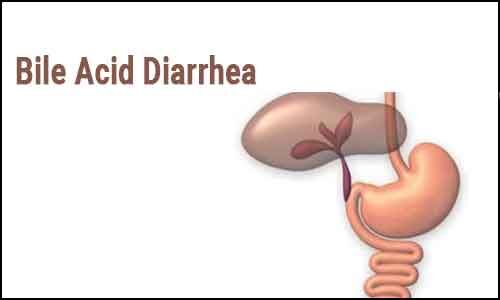- Home
- Medical news & Guidelines
- Anesthesiology
- Cardiology and CTVS
- Critical Care
- Dentistry
- Dermatology
- Diabetes and Endocrinology
- ENT
- Gastroenterology
- Medicine
- Nephrology
- Neurology
- Obstretics-Gynaecology
- Oncology
- Ophthalmology
- Orthopaedics
- Pediatrics-Neonatology
- Psychiatry
- Pulmonology
- Radiology
- Surgery
- Urology
- Laboratory Medicine
- Diet
- Nursing
- Paramedical
- Physiotherapy
- Health news
- Fact Check
- Bone Health Fact Check
- Brain Health Fact Check
- Cancer Related Fact Check
- Child Care Fact Check
- Dental and oral health fact check
- Diabetes and metabolic health fact check
- Diet and Nutrition Fact Check
- Eye and ENT Care Fact Check
- Fitness fact check
- Gut health fact check
- Heart health fact check
- Kidney health fact check
- Medical education fact check
- Men's health fact check
- Respiratory fact check
- Skin and hair care fact check
- Vaccine and Immunization fact check
- Women's health fact check
- AYUSH
- State News
- Andaman and Nicobar Islands
- Andhra Pradesh
- Arunachal Pradesh
- Assam
- Bihar
- Chandigarh
- Chattisgarh
- Dadra and Nagar Haveli
- Daman and Diu
- Delhi
- Goa
- Gujarat
- Haryana
- Himachal Pradesh
- Jammu & Kashmir
- Jharkhand
- Karnataka
- Kerala
- Ladakh
- Lakshadweep
- Madhya Pradesh
- Maharashtra
- Manipur
- Meghalaya
- Mizoram
- Nagaland
- Odisha
- Puducherry
- Punjab
- Rajasthan
- Sikkim
- Tamil Nadu
- Telangana
- Tripura
- Uttar Pradesh
- Uttrakhand
- West Bengal
- Medical Education
- Industry
Management of Bile Acid Diarrhea: Canadian Association of Gastroenterology guidelines

Canadian Association of Gastroenterology has released its latest clinical Practice Guideline on the Management of Bile Acid Diarrhea. The guidelines have been published in Clinical Gastroenterology and Hepatology.
Chronic diarrhea affects about 5% of the population overall. Altered bile acid metabolism is a common but frequently undiagnosed cause. The most common causes of chronic diarrhea in clinical practice are functional disorders (eg, irritable bowel syndrome [IBS]), and inflammatory diseases (eg, Crohn's disease, celiac disease). However, a common but frequently underdiagnosed cause of chronic diarrhea is dysregulated bile acid recycling within the enterohepatic circulation: either excessive biosynthesis/secretion of bile acids or malabsorption of bile acids by the ileum.
Key recommendations are-
- In patients with chronic nonbloody diarrhea, we recommend using risk factors (history of terminal ileal resection, cholecystectomy, or radiotherapy) as the initial assessment to identify patients with possible BAD.
- In patients with chronic nonbloody diarrhea, we suggest against using symptom presentation as the initial assessment to identify patients with possible BAD.
- In patients with chronic diarrhea including IBS-D and functional diarrhea, we suggest SeHCAT testing to identify patients with BAD.
- In patients with small intestinal Crohn's disease without objective evidence of inflammation who have persistent diarrhea, we suggest SeHCAT testing.
- In patients with chronic diarrhea including IBS-D and functional diarrhea, we suggest using a C4 assay to identify possible BAD.
- In patients with suspected BAD, we suggest against initiating empiric BAST over-performing SeHCAT to establish a diagnosis of BAD.
- In patients with type 1 or type 3 BAD, we suggest the use of treatments for remediable causes (eg, Crohn's disease, microscopic colitis, SIBO) in addition to treatment for BAD for induction of clinical response.
- In patients with BAD, we suggest using cholestyramine over no treatment for induction of clinical response.
- In patients with BAD, we suggest using cholestyramine over other BASTs as initial therapy for induction of clinical response.
- In patients with BAD who are unable to tolerate cholestyramine, we suggest using an alternate BAST for induction of clinical response.
- In patients with BAD receiving empiric BAST, gradual daily dose titration should be used to minimize side effects.
- In patients with Crohn's disease with extensive ileal involvement or resection, we suggest against using BAST.
Maintenance therapy for BAD (BAST)
- In patients with BAD who respond to BAST, we suggest that intermittent, on-demand dosing be tried.
- In patients with BAD who are unable to tolerate BAST, we suggest using alternative antidiarrheal agents vs no treatment for long-term symptomatic therapy
- In patients with BAD receiving empiric BAST, maintenance therapy should be used at the lowest dose needed to minimize symptoms.
- In patients with BAD and recurrent or worsening symptoms despite stable BAST, diagnostic re-evaluation should be conducted
- In patients being considered for BAST, a review of concurrent medications should be conducted to minimize the potential for drug interactions.
- In patients with chronic diarrhea including IBS-D and functional diarrhea, the consensus group could not make a recommendation for or against the use of FGF19 assay to identify possible BAD
- In patients receiving long-term maintenance therapy with BAST, the consensus group could not make a recommendation for or against measuring fat-soluble vitamin levels at baseline and annually thereafter.
For more details click on the link: https://doi.org/10.1016/j.cgh.2019.08.062
Hina Zahid Joined Medical Dialogue in 2017 with a passion to work as a Reporter. She coordinates with various national and international journals and association and covers all the stories related to Medical guidelines, Medical Journals, rare medical surgeries as well as all the updates in the medical field. Email: editorial@medicaldialogues.in. Contact no. 011-43720751
Dr Kamal Kant Kohli-MBBS, DTCD- a chest specialist with more than 30 years of practice and a flair for writing clinical articles, Dr Kamal Kant Kohli joined Medical Dialogues as a Chief Editor of Medical News. Besides writing articles, as an editor, he proofreads and verifies all the medical content published on Medical Dialogues including those coming from journals, studies,medical conferences,guidelines etc. Email: drkohli@medicaldialogues.in. Contact no. 011-43720751


